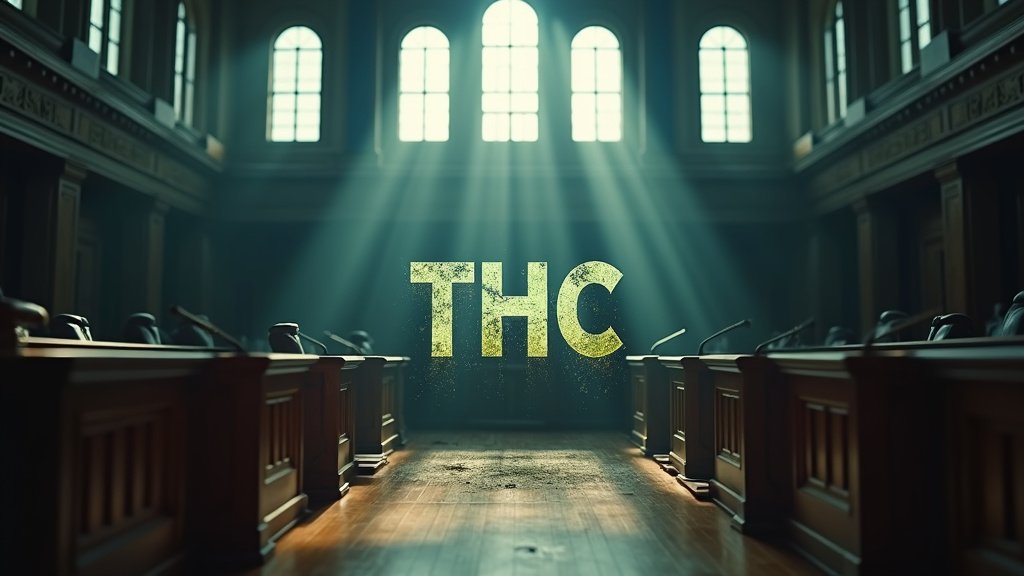Texas Hemp Industry Survives Latest Ban Attempt, Continues Operation Amidst Regulatory Debate
The burgeoning hemp-derived THC industry in Texas has successfully navigated another legislative attempt to ban its products. Following Governor Greg Abbott’s veto of a sweeping prohibition bill earlier in the year, lawmakers concluded their second special session without enacting further restrictions, leaving the multi-billion dollar sector operational but facing continued regulatory uncertainty. This outcome represents a significant victory for industry stakeholders who have been advocating for regulation rather than prohibition.
Background: The Legalization of Hemp and Evolving Market
The landscape for hemp in Texas was reshaped in 2019 with the passage of House Bill 1325. This legislation legalized hemp, defining it as cannabis with a delta-9 tetrahydrocannabinol (THC) concentration of not more than 0.3 percent on a dry weight basis. While intended to bolster agricultural opportunities, HB 1325 inadvertently created a loophole that manufacturers and retailers exploited to produce and sell intoxicating hemp-derived products, such as Delta-8 and Delta-9 THC, which are chemically similar to marijuana but derived from legal hemp. This development has since fueled a significant economic boom but also sparked intense debate over consumer safety and product regulation.
Legislative Showdowns: Vetoes and Special Sessions
The latest chapter in this ongoing saga unfolded during the 2025 legislative sessions. In June, Governor Greg Abbott vetoed Senate Bill 3, a bill passed by the Legislature that aimed to ban all consumable hemp products containing any amount of THC. Abbott cited concerns that the bill conflicted with federal law, specifically the 2018 Farm Bill which legalized hemp, and that it would face constitutional challenges. He instead called for a special session to establish a regulatory framework for these products.
However, the subsequent special sessions revealed a deep division between the Texas Senate, led by Lieutenant Governor Dan Patrick, and the House. Patrick and Senate leadership championed Senate Bill 5 and later Senate Bill 6, which sought to impose strict bans on intoxicating cannabinoid products. These bills advanced through the Senate with bipartisan support, but stalled in the House, where a broader coalition of lawmakers and industry advocates pushed for sensible regulations instead of an outright ban. Despite intense negotiations, including efforts by top Republican leaders to find a compromise, the legislative sessions concluded without any agreement, effectively killing the ban proposals for the current session.
Economic Powerhouse: The Hemp Industry’s Contribution
Reports from Whitney Economics underscore the immense economic significance of the Texas hemp industry. As of March 2025, the sector generates an estimated $5.5 billion in annual sales, contributing to over $10 billion in total economic activity statewide. The industry supports more than 53,000 jobs and generates approximately $268 million in annual state sales tax revenue. Industry advocates warn that a ban would lead to the closure of thousands of businesses, the loss of tens of thousands of jobs, and a substantial reduction in state tax revenue, potentially costing the state billions and crippling small businesses.
Key Players and Divergent Stances
Governor Greg Abbott has positioned himself as a proponent of regulation, emphasizing consumer protection and alignment with federal law, a stance that led to his veto of SB 3 and his push for regulatory solutions during special sessions. Lieutenant Governor Dan Patrick, conversely, has been a vocal advocate for a complete ban, labeling many hemp-derived products as dangerous and a threat to public safety, particularly for minors.
The Texas Hemp Business Council (THBC), representing a broad spectrum of industry stakeholders, has welcomed the industry’s survival. “Texans want hemp,” stated the council, “And we’re not going down without a fight.” The organization advocates for the implementation of regulations such as age limits for sales (21 and older), child-resistant packaging, and school setbacks, arguing that sensible rules are a better approach than prohibition.
Looking Ahead: Continued Uncertainty and Advocacy
While the immediate threat of a ban has passed, the future of Texas’s hemp industry remains somewhat uncertain. The Legislature’s failure to pass comprehensive regulations means that consumable hemp-derived products remain legal, with no formal state-imposed age limit on purchases, though many retailers voluntarily enforce their own restrictions. It is important to note that a separate law banning the sale of hemp-derived THC vape products did go into effect on September 1, 2025.
Lt. Gov. Patrick has indicated his position for a total THC ban remains unchanged, suggesting the debate is far from over and may resurface in future legislative sessions. The Texas Hemp Business Council, meanwhile, continues its advocacy for responsible regulations, aiming to secure the industry’s long-term viability while addressing public safety concerns. The outcome of these ongoing discussions will continue to shape this dynamic and economically vital sector in Texas News.






